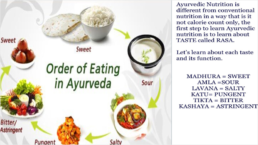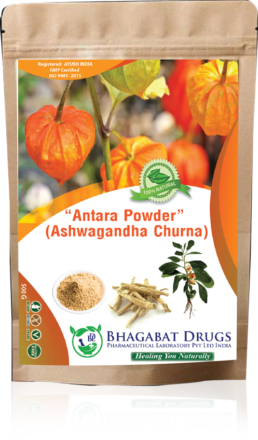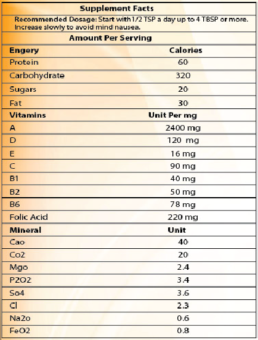What is Ayurvedic Nutrition?
Ayurveda, which comes from the ancient Vedic texts, is a 5,000-year-old medical philosophy and practice, predicated on the idea that we all are made up of different types of energy and states that poor nutrition is the main cause of disease and the Ayurvedic system uses food to heal and prevent illness.
Ayurveda is centered around three energies called doshas — vata, pitta and kapha. Each person is a unique makeup of these doshas, and that composition is called one’s prakruti. While all three are present in everyone, Ayurveda proposes that we each have a dominant dosha that’s unwavering from birth, and ideally an equal (though often fluctuating) balance between the other two. When the doshas are balanced, we are healthy; when they are unbalanced, we develop disease, which is usually made manifest by skin issues, poor digestion, insomnia, irritability, and anxiety.
This is the principle that recognizes that each human being is born with unique combinations of doshas, and that this natural balance is what is responsible for physical, mental, and emotional difference among people. By identifying and maintaining an individual’s Prakruti, Ayurveda can help each person create his or her own state of ideal health. Every person digests and assimilates food differently.



Doshas and Diet
The doshas govern physical, mental and spiritual health. According to ayurvedic teachings, a person’s prakruti is immutable. Ayurveda advocates preventive care by balancing one’s doshic makeup through diet.
Vata: comprises air and ether, and is associated with lightness, dryness, change and creativity. According to ayurveda, people who are predominantly vata are spiritual, positive and adaptable when balanced — and restless, indecisive and fearful when vata is unbalanced. Vatas are said to have dry skin, and experience stiffness, gas, constipation and coldness when the dosha is unbalanced. An ayurvedic practitioner may recommend warm, wet food like soups, oils and herbal teas.
Pitta: encompasses fire and water, and is associated with sharpness, drive and confidence. Those who are predominantly pitta are reportedly competitive, powerful, focused and expressive. They are leaders and visionaries when pitta is balanced, but may become demanding and arrogant when out of balance. According to ayurveda, pittas may suffer from inflammation, acid reflux and overheating, and a diet of sweet, cool foods such as juice, salads, raw seeds and cooling herbs while avoiding alcohol, caffeine and spicy food may help balance pitta.
Kapha: is associated with oiliness, density, languidness and stability. Kaphas are said to be kind, caring and patient. When kapha is balanced, they are providers and nurturers. Out of balance, kaphas reportedly tend toward depression, neediness and secrecy. Physically, they may suffer from weight gain, high cholesterol and congestive disorders. An ayurvedic practitioner may recommend bitter, light and dry food to balance kapha, including salads, beans, citrus and whole grains, and avoiding salt, overeating and sugar.


Disclaimer: All ingredients are of pure vegetarian origin consisting of extracts of herbs, spices , roots , resins and other natural extracts only.



